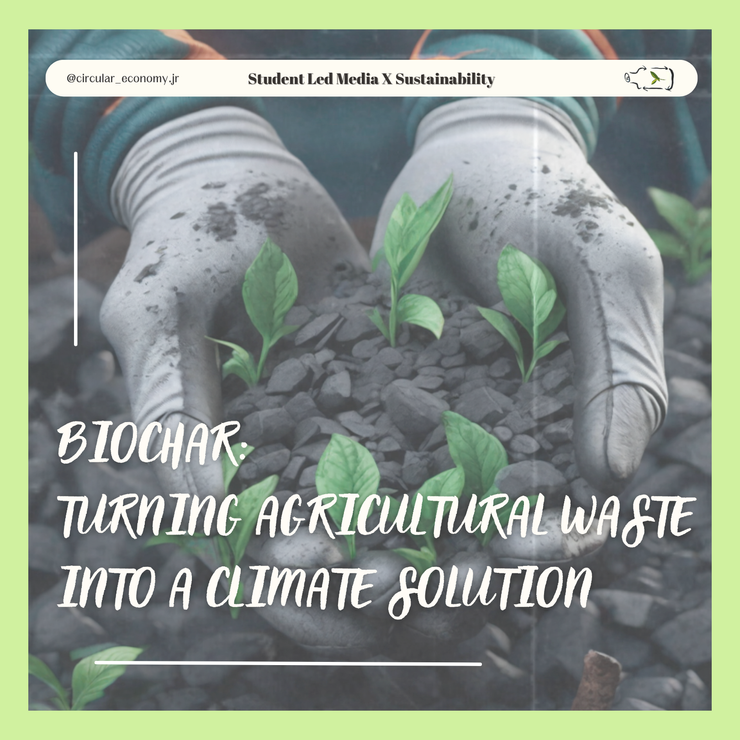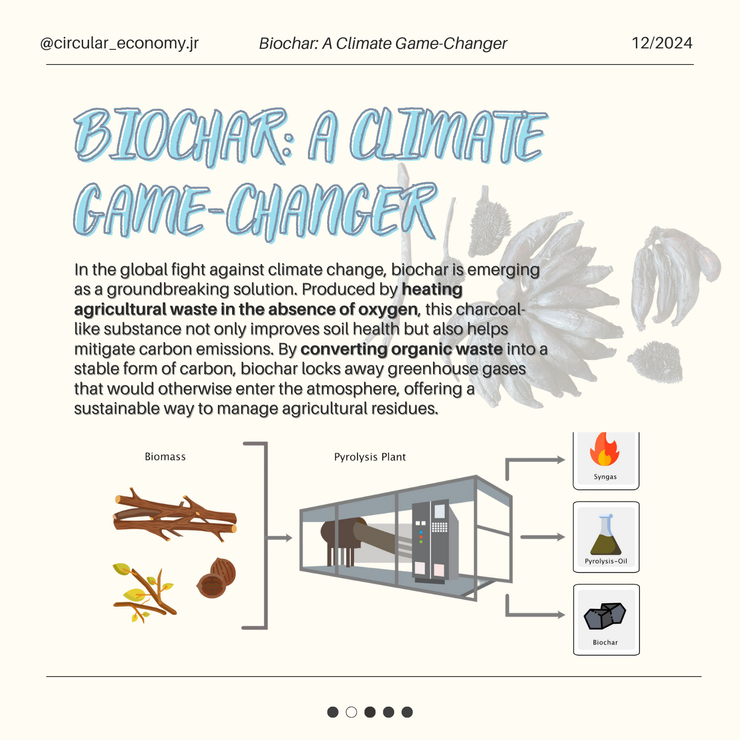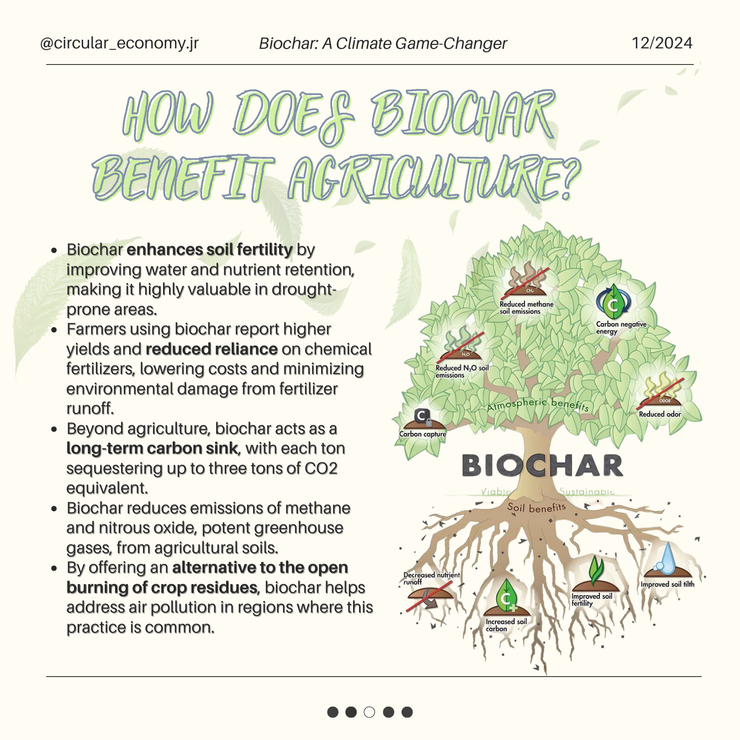
In the global fight against climate change, biochar is emerging as a groundbreaking solution. Produced by heating agricultural waste in the absence of oxygen, this charcoal-like substance not only improves soil health but also helps mitigate carbon emissions.. Discover more by clicking this post !
《Biochar: Turning Agricultural Waste into a Climate Solution》
Author|Bernie Lin
Editor|Sophia Wu—

In the global fight against climate change, biochar is emerging as a groundbreaking solution. Produced by heating agricultural waste in the absence of oxygen, this charcoal-like substance not only improves soil health but also helps mitigate carbon emissions. By converting organic waste into a stable form of carbon, biochar locks away greenhouse gases that would otherwise enter the atmosphere, offering a sustainable way to manage agricultural residues.

How Does Biochar Benefit Agriculture?
Biochar’s benefits extend beyond climate mitigation. When added to soil, it enhances fertility by improving water and nutrient retention, making it especially valuable in drought-prone regions. Farmers using biochar report higher yields and reduced reliance on chemical fertilizers, which lowers costs and minimizes environmental damage caused by fertilizer runoff. In degraded lands, biochar revitalizes soils, restoring productivity and reducing erosion.
Beyond agriculture, biochar is a powerful climate ally. Each ton of biochar can sequester up to three tons of CO2 equivalent, acting as a long-term carbon sink. Additionally, it reduces emissions of methane and nitrous oxide—potent greenhouse gases—from agricultural soils. By offering an alternative to the open burning of crop residues, biochar also addresses air pollution in regions where this harmful practice is widespread.

Limitation and Challenges
Despite its numerous benefits, the widespread adoption of biochar faces several hurdles, including high initial costs, lack of knowledge, and supportive policy. For small-scale farmers, setting up biochar production facilities can be expensive, making it less accessible. In addition, many farmers are unaware of the benefits of biochar or lack the related knowledge to produce and apply it effectively.
For biochar to realize its full potential, a multi-faced approach is required. The government should recognize biochar as a climate solution and integrate it into national and international climate strategies. Moreover, more studies are needed to optimize biochar production and application for different soils and climates. Collaboration between governments, NGOs, and private companies can accelerate biochar adoption through funding and technology transfer.

For a Brighter Future
Biochar offers a rare win-win solution: a method to recycle agricultural waste, enhance soil productivity, and combat climate change simultaneously. While challenges remain, its potential is too great to ignore. By embracing biochar, we can take a significant step toward a more sustainable and climate-resilient future.
The time to act is now—what we see as agricultural waste today can become the foundation of tomorrow’s climate solution.
—
Reference:
- Spears, Stefanie. “What Is Biochar? - Regeneration International.” Regeneration International, 16 May 2018, regenerationinternational.org/2018/05/16/what-is-biochar/. Accessed 16 Dec. 2024.
- “Biochar | USDA Climate Hubs.” Usda.gov, 2024, www.climatehubs.usda.gov/hubs/northwest/topic/biochar. Accessed 16 Dec. 2024.
—
Taiwanese Circular Economy Jr. Org is updated every Saturday and Sunday at 14:00 ✨
—
#Biochar #ClimateSolution #SustainableFarming #CarbonSequestration #AgriculturalInnovation #SoilHealth #Sustainability #ClimateAction #GreenTechnology #EcoFriendly #CircularEconomy #CarbonSink













